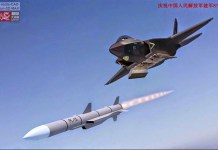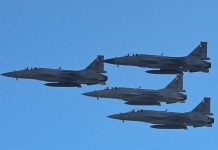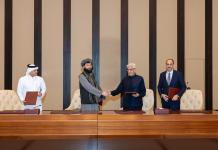The latest round of intra-Afghan talks failed to deliver a breakthrough, with the Afghan government and the Taliban vowing in a joint statement Sunday to meet again and expedite high-level peace talks in Doha, Qatar.
The statement, issued after two days of talks, said the two sides also vowed to safeguard civilian lives, infrastructure and services in the war-ravaged country.
Both sides “realize the need of an agreement that can address the interests and demands of all women and men of Afghanistan in light of Islamic principles” and “are determined to stay engaged in negotiations at a high level to reach such an agreement and for reaching this aim continue such meetings,” it said.
Minutes after the joint statement, Taliban spokesman Mohammed Naeem categorically rejected any agreement on a cease-fire or release of prisoners.
Sources in the Afghan government’s peace delegation told Anadolu Agency that the Taliban had floated the idea of an extended cease-fire provided up to 7,000 more of their captives are freed by the Afghan government. They also want their leaders to be removed from the UN sanctions list, the sources said.

The Afghan government, on the other hand, has been hesitant to accept this idea as a way out after seeing many of the 5,000 Taliban who have already been freed return to the battlefield.
Earlier in the day, amid the rejuvenated intra-Afghan negotiations, the supreme leader of the Taliban expressed his inclination towards a peaceful settlement of the conflict.
In his traditional annual message for the Muslim Eid al-Adha holiday, Mawlawi Hibatullah Akhundzada said the group has become stronger, better organized, well-equipped and more robust compared to the past in the wake of the withdrawal of foreign troops.
His message came short of expectations of a cease-fire for this week’s holiday.
Earlier, Russian Foreign Minister Sergey Lavrov said that no new platforms were needed to give the Afghan peace process a new impetus as long as the warring parties held to their commitments.
The diplomat spoke at an Uzbekistan-sponsored high-level international conference on regional connectivity, a day after the Central Asian nation formed a new platform together with the United States, Afghanistan and Pakistan in a bid to stop the Taliban from overrunning Afghanistan.

“They are already talking about other formats on the sidelines of this conference. There may be many formats as everyone is trying — mostly out of good intentions — to give a new impetus to the stalled political process. We believe that they should stick to what has already been agreed by the government and the Taliban, rather than come up with new arrangements,” Lavrov said.
The Taliban was emboldened by the announcement of the US troop pullout in April to launch an offensive against Afghan government forces after peace efforts stalled. Militants quickly pushed into key northern cities and overran large swaths of land, seizing border crossings into neighboring countries.




